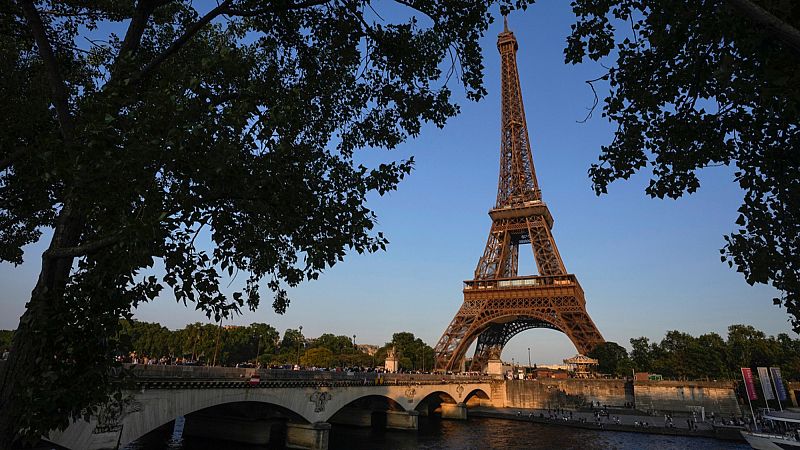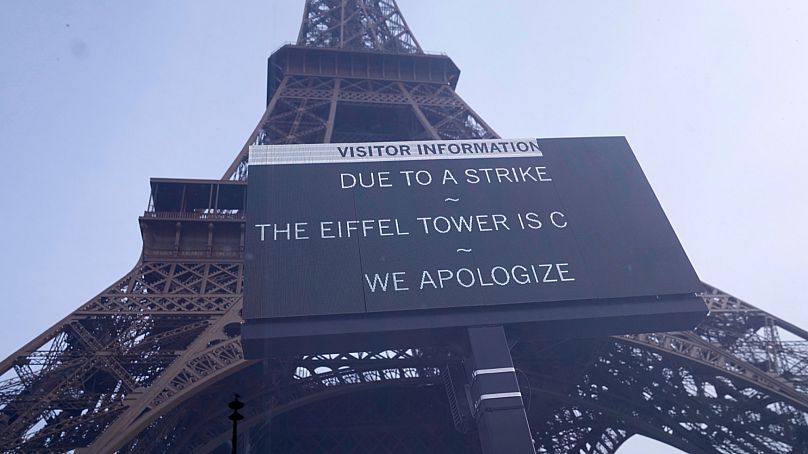Is Paris really demolishing the Eiffel Tower next year? Truth behind viral claims

Sensational claims that the Eiffel Tower will be demolished in 2026 have circulated across social media, following the attraction's temporary closure.
The 330-metre landmark, which has become one of the most iconic structures in the world, attracts millions of visitors every year. In 2023, it generated €117.87 million in revenue in 2023.
It is one of the few French monuments that does not receive state subsidies and employs more than 300 people in the city. So, why do people think the Eiffel Tower is about to meet its demise?
Why the Eiffel Tower closed this month
Earlier this month (2 October) residents took to the streets of more than 200 towns and cities across Franceto protest against the government’s spending cuts and call for higher taxes on the rich.
In Paris, thousands joined in on the national strikes, leading to the Eiffel Tower suspending visitor access for the day due to safety reasons.
“Due to a strike, the Eiffel Tower is closed,” a sign at the attraction said. “We apologise.”
Is Paris knocking down the Eiffel Tower?
Weeks before the protest, a satirical news outlet published an article joking that the Eiffel Tower would be bulldozed and turned into a “giant slide” or concert hall.
However, thanks to social media and a lack of context, these two stories ended up being conflated.
On X (previously Twitter) accounts with hundreds of thousands of followers began sharing misleading posts declaring the landmark was reaching the “end of an era”.
“According to reports [the] world-famous Eiffel Tower, a symbol of France for over 135 years, is reportedly set for demolition in 2026 after its operating lease expires,” the fake claims read.
“Structural fatigue, costly maintenance and rising public complaints [are] key reasons behind this shocking decision.”
Some social media users were quick to believe the fabricated posts, with one user writing: “Hold up, Paris! Don’t demolish my dream proposal spot,” while another said: “Oh… This shouldn’t happen.”
However, others were quick to question the validity of the bold claims, reassuring fellow social media users that the post was “fake”.
Société d’Exploitation de la Tour Eiffel (SETE), which operates the tower, has not publicly responded to the viral claims.
Tourists can still book tickets to access the Eiffel Tower lifts on its website.
How does fake news impact the travel industry?
While many people are dubious of exaggerated news and fake claims, they can spark chaos for tourist-reliant destinations.
Earlier this year, Italy announced it was cracking down on fake hotel and restaurant reviews after business owners complained their reputations were being unfairly damaged.
False or manipulated content impacts between 6 and 30 per cent of the revenue of businesses in the hospitality and tourism sector, according to Italy’s ministry of enterprises.
As a result, the country unveiled fresh rules that would require tourists to provide proof of a visit before they leave a review.
“Today marks an important step for the protection of our businesses,” Daniela Santanché, Italy’s tourism minister, told the media when introducing the legislation.
“Reviews, which thanks to this regulatory intervention will actually be truthful, are fundamental for the success of companies and for the trust of consumers and tourists.”
Euronews Travel has approached SETE for comment.
Today


